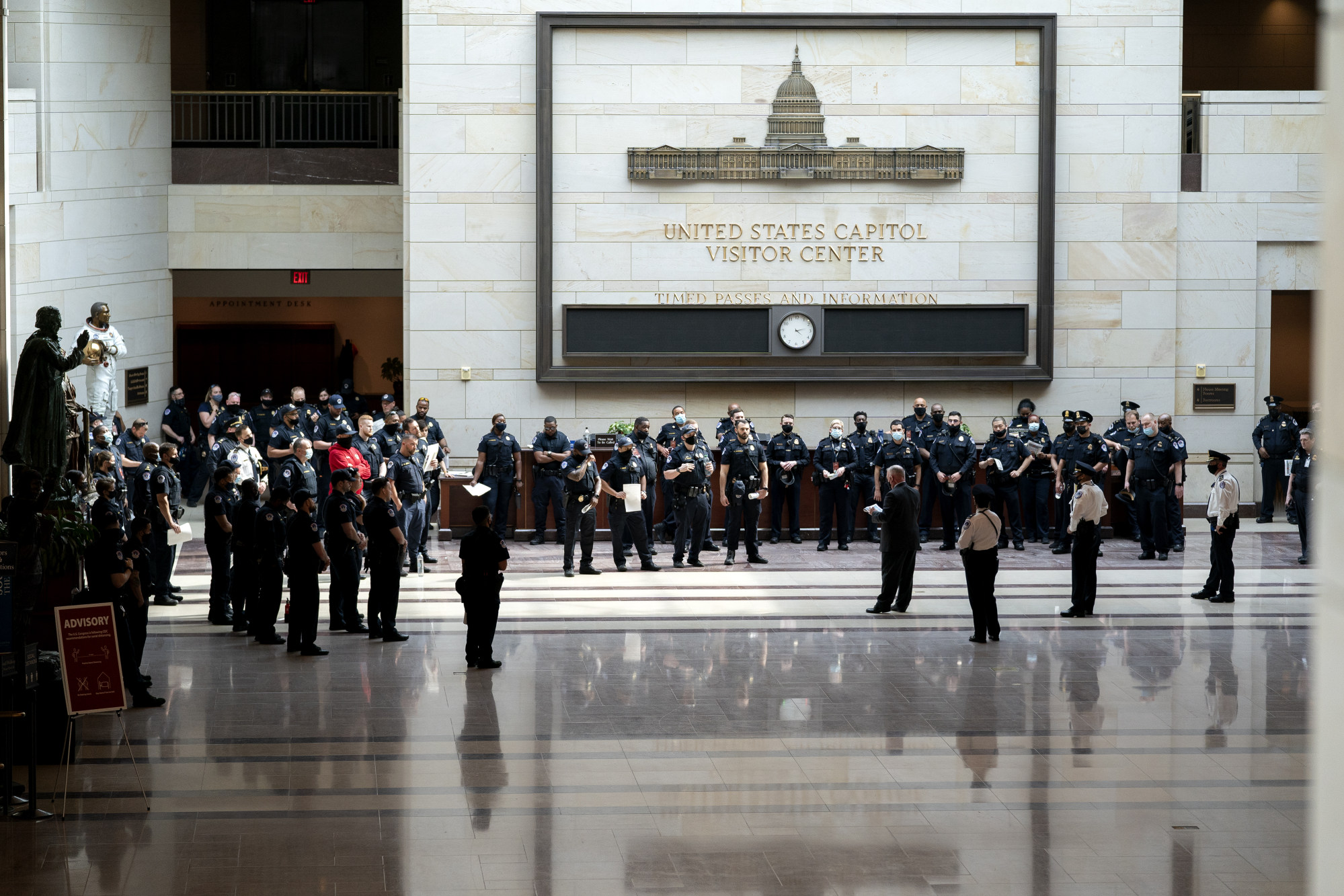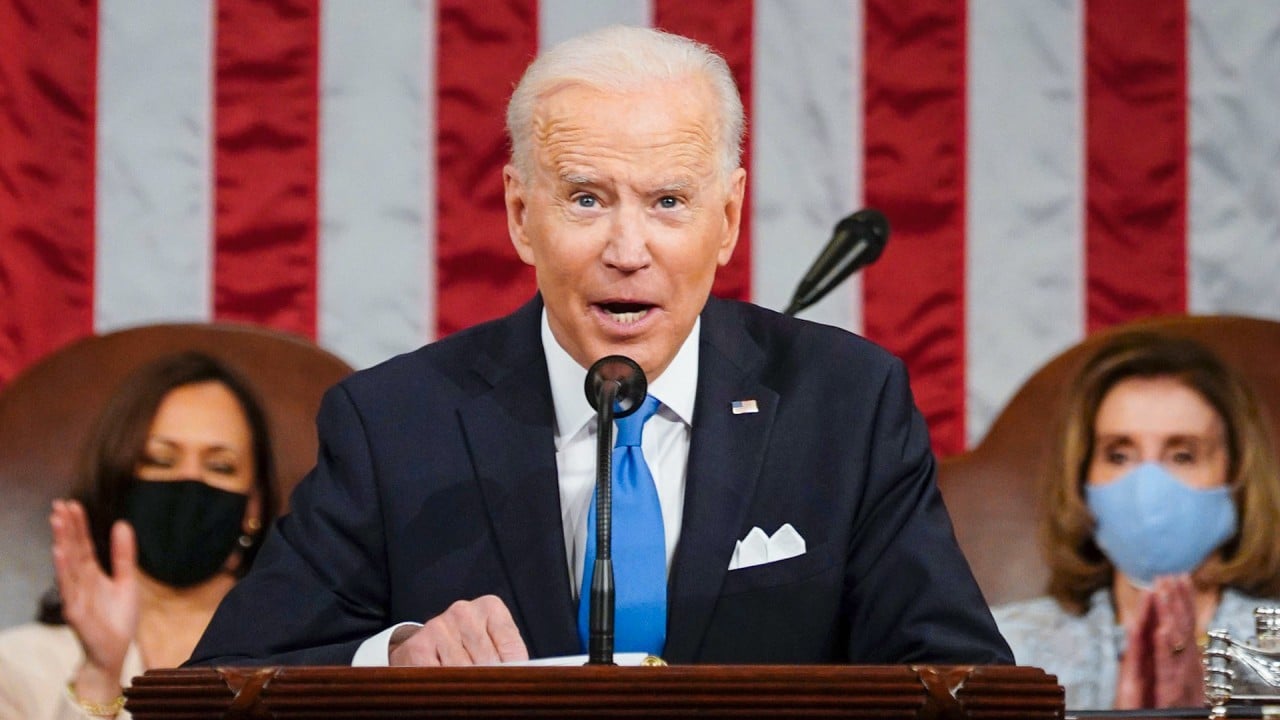
Biden casts US-China relations as a battle for the century
- US president tells joint sessions of Congress Xi Jinping is ‘deadly earnest’ about China becoming the most consequential nation in the world
- Relationship will be a litmus test of the merits of democracy versus autocracy and a competition to develop the technologies of the future, he says
Chinese President Xi Jinping was “deadly earnest about [China] becoming the most significant, consequential nation in the world,” Biden said on Wednesday, addressing a socially-distanced gathering of lawmakers in the House chamber.
“He and others – autocrats – think that democracy can’t compete in the 21st century with autocracies, because it takes too long to get consensus,” he said, appearing to veer off script, according to prepared remarks circulated by the White House before the speech.
“To win that competition in the future, in my view we also need to make a once-in-a-generation investment in our families and our children,” Biden said, as he urged lawmakers to support his US$1.8 trillion families and education package, which includes support for universal preschool and two years of free community college.
“We’re in competition with China and other countries to win the 21st century. We’re at a great inflection point in history, we have to do more than just build back … we have to build back better.”
The US was falling behind the rest of the world on advanced technologies like artificial intelligence, said Biden, whose signature “American Jobs Plan” allocates some US$90 billion for federal-directed research of critical technologies.
In particular, Biden said the US must do more to develop advanced technologies relating to batteries, biotechnology, computer chips and clean energy. “China and other countries are closing in fast,” he said.
Biden pledges to prevent China from becoming the world’s ‘leading’ country
Foreign affairs tend to take a back seat in presidential addresses to Congress, but in another passage dedicated to China later in the speech, Biden vowed to “maintain a strong military presence” in the Indo-Pacific region – “not to start conflict, but to prevent one.”
And in language reminiscent of the prior administration, Biden pledged to defend American workers against the effects of Beijing’s subsidies for state-owned enterprises and “the theft of American technology and intellectual property”.
Biden’s pledge to put the American worker first – there was “simply no reason” wind turbine blades could not be made in Pittsburgh instead of Beijing, he said to applause – characterised a speech that sought to offer a vision for repairing a country ruptured by the Covid-19 pandemic and cleaved by bitter partisanship.
Delivered to a scaled-back, masked audience due to coronavirus concerns, Biden’s one-hour address to Congress broke with precedent in more ways than one. For the first time in US history, two women – Vice-President Kamala Harris and House Speaker Nancy Pelosi – occupied the pair of seats behind him.

Still fresh on the minds of attendees were the scenes on Capitol Hill nearly four months ago, when supporters of former US President Donald Trump stormed the complex in a violent siege that resulted in multiple deaths and disrupted lawmakers’ certification of Trump’s defeat.
“I will never forgive those people and the president who instigated the insurrection for the trauma that they caused to the workers in the Capitol, whether it was the young people who worked in our offices, whether it was the custodial staff who make the Capitol run, whether it was the Capitol police,” Pelosi told MSNBC earlier on Wednesday.
National Guard troops, still on the premises after the January 6 siege, assisted with security on Wednesday, while fencing continued to encircle the Capitol complex.
But compared with previous joint session addresses, which typically draw around 1,600 attendees, Wednesday’s event was a much smaller affair, with the around 200 lawmakers attending prohibited from bringing guests because of coronavirus protocols.
Biden’s first 100 days: more action, less golf, no Twitter drama
With most of the cabinet watching remotely, no “designated survivor” – an administration official who stays off the premises in the event of a catastrophic incident – was chosen.
While significantly scaled down, the prime-time event nonetheless served as a valuable opportunity for Biden, who began working on his speech several weeks ago, to communicate directly with both lawmakers and the public about his priorities.
“He was in the Senate for 36 years,” White House press secretary Jen Psaki told reporters on Tuesday. “He also sat through eight of these as the vice-president, and he certainly recognises the important opportunity that this offers.”


